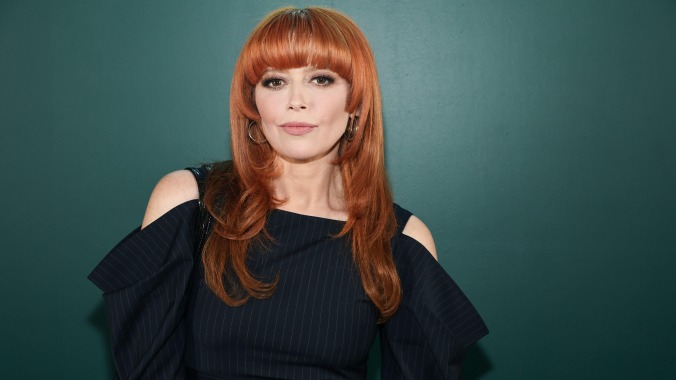Natasha Lyonne reflects on her career: "I've been playing men this whole time"
Natasha Lyonne says her acting strategy has been "stealing from DeNiro" to play more masculine characters

Natasha Lyonne is one of television’s most beloved female stars, but she has perhaps become so by eschewing the kind of roles typically written for women in the medium. “In many ways, I feel like, ‘Oh, maybe I was meant for exactly these times,’” she reflects, bringing up a classic Beach Boys track in a new Variety interview. “[Just] the idea that a woman would be allowed to embody this quintessentially male role on Poker Face. And it’s an unspoken thing we’re even doing it.”
Of course, Poker Face isn’t the only project to which she’s brought a certain masculine energy. As she puts it, she’s spent much of her career playing “tough guy New York.” She admits, “I’ve been playing men this whole time. I’ve been stealing from [Robert] De Niro my whole life.” She cites Al Pacino and Stanley Kubrick as formative influences, and previously told Time she is still inspired by Martin Sheen in Apocalypse Now. “[As] much as I love Bette Davis and Mae West and Gena Rowlands, I often found myself identifying with the Peter Falks and the Joe Pescis and the Jimmy Cagneys—all the boys,” Lyonne explained to that outlet. “Certainly, by the time I was writing Russian Doll, I saw a character who was the perfect mix of feminine and masculine.”
A certain androgynous quality, she shared with Time, allows you “to circumnavigate all the traditional, overused tropes surrounding how we think of female characters. Especially when they’re the central character, it seems that they’re defined by an outer life.” However, “I’m curious what it would be like to soften, or to play women,” she says now to Variety. “What would it be like to let my voice register a bit higher? What would it be like to be a bit more vulnerable?”
Somehow, though, despite Lyonne’s undeniable success, there’s still a level of misogyny to deal with behind the scenes. Unlike her male counterparts who would have their pick of roles after creating and starring in something like Russian Doll, Lyonne says “it’s the inverse” for female multihyphenates. “When women are doing a lot of those jobs, that can feel intimidating,” she says. “With all the excitement of Russian Doll season one, Rian [Johnson] was the only person who came to me saying, ‘I really want to come up with something for us to do together’—and then he followed through.”